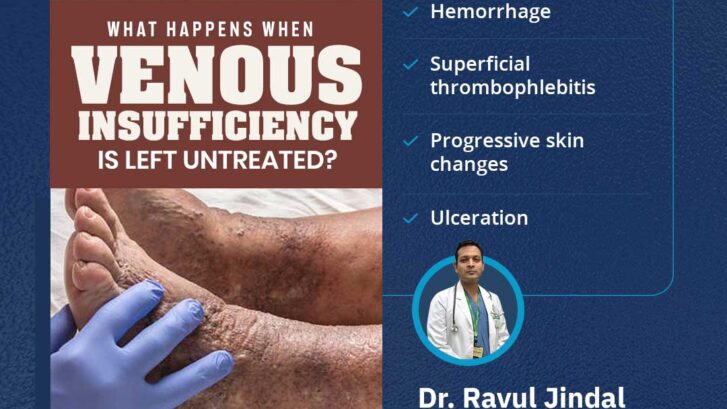Yes. Venous diseases can cause poor circulation in the feet.
Our circulatory system consists of the heart and the blood vessels. The blood vessels are hollow tubes that carry blood. Your heart pumps blood through blood vessels such as arteries and veins. The arteries carry oxygen-rich blood to the organs, and the veins carry the oxygen-deficient blood back to the heart. The veins have valves inside them that prevent the backflow of blood. As your muscles contract, it allows these valves to open, which facilitates the flow of blood toward the heart.
In the presence of venous diseases, these valves do not function adequately, which leads to blood leakage, backflow of blood, or even flow of blood in both directions. Damaged veins hinder the circulatory system from functioning properly and promote the pooling of blood. With increased blood pooling, there is a buildup of pressure that further causes stretching, twisting, and swelling of veins, coupled with sluggish blood flow, and eventually clot formation.
What are venous diseases?
Venous diseases include the following:
- Blood clots
- Deep vein thrombosis
- Superficial venous thrombosis or phlebitis
- Chronic venous insufficiency
- Varicose veins
- Spider veins
- Ulcers
What are the symptoms to look for?
You may experience one or more of the symptoms listed below if you are suffering from venous disease. This may vary based on the type and severity of the venous disease. Symptoms of venous disease include the following in your legs:
- Enlarged, engorged, twisted veins
- Swelling
- Heaviness
- Burning, itching, discoloured skin
- Long-standing leg sores
- Persistent fatigue
How to treat venous diseases?
Several surgical and non-surgical treatments are available for venous diseases. The type and severity of the venous disease, as well as patient factors (age, economic constraints, work-related factors), will determine the treatment of choice. A few of them are:
- Medications to prevent clot formation and dissolve existing clots
- Use of compression stockings or therapy
- Opening blocked vessels using stenting
- Sclerotherapy
- Vein stripping and ligation
- Venacava filter
- Vascular or endovascular surgery
- Advanced techniques (laser ablation, mechanochemical ablation, radiofrequency ablation, glue closure technique, steam ablation, cryolaser cryosclerotherapy, foam sclerotherapy, four-layer dressing, and NDYAG).
- Doctors who specialize in vein diseases are vascular and endovascular surgeons. Always visit a doctor if you experience any of the above-mentioned symptoms that do not go away.
If you are diagnosed with any of the venous diseases then consult a vascular specialist and get the best possible treatment.


